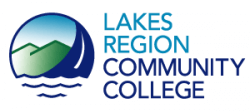New head of fire science program at Lakes Region Community College brings deep hands-on experience to an evolving field
LACONIA – Nick Mercuri has a passion to help one of the top fire science programs in the country continue to evolve and produce fire and emergency medical service graduates that are committed to keeping people and communities safe. He joined Lakes Region Community College this January as the new program chair for the Fire Technologies Program and has spent his entire career in the field of emergency services. Mercuri brings decades of leadership and hands-on experience to the program, which is recognized as a Fire and Emergency Services Higher Education program by the United States Fire Administration and is currently ranked as the #4 program out of 221 colleges in the United States.
With experience as a firefighter, lieutenant paramedic and ER nurse, and most recently chief of strategy and planning for the New Hampshire Division of Fire Standards and Training and EMS for the New Hampshire Fire Academy, Mercuri brings a wide range of perspectives and skills to LRCC. His vision for the future of educational programming foresees a greater confluence and alignment of fire services and emergency medical services.
“We’re taking a look at what the needs are for fire and emergency medical services and making sure that we are aligned with those. We are consistently being called upon to provide more services to our communities, and this program is poised to train the next generation of emergency responders. Citizens often call 911 because they don’t know who else to call, and we are often the first step into the healthcare system for a lot of people. We provide prevention services, whether medical, safety, or fire protection. Emergency responders are at the intersection of healthcare, public health and public safety, and do much more than just respond to emergencies. For example, departments may do blood pressure checks, public education, install smoke detectors, or choose to become part of the vaccination program,” he said.
The programs at LRCC feature certificate and associate degrees in both fire protection and fire science. Positions in the fire protection field typically include code enforcement officers and fire inspectors within a department. Positions in the fire science field typically are firefighters and EMS responders, such as Emergency Medical Technicians, Advanced Emergency Medical Technicians and paramedics.
Students in both programs learn about emergency services administration, basic and advanced firefighting, occupational health, fire behavior, fire codes and a variety of other topics so that they can become employed within not only the fire service, but the fire protection fields. The fire science program also has emergency medical services built into it to prepare students for the medical aspect of the fire service and have them cross-trained since many fire departments provide first response to medical incidents or operate their own ambulance.
“Modern Emergency Medical Services has the ability to bring the emergency department to the patient, whether it’s a house or whether it’s an accident scene, or otherwise. They’re bringing a lot of high-tech medical care to the person as opposed to waiting until the patient arrives at the ER. That initial care can be critical and may shorten an emergency room or a hospital stay, or reduce the long-term effects of an injury. This is why we need to talk about fire science programs and emergency medical services (EMS) together,” he said.
Mercuri said that LRCC is trying to meet the needs of students and the fire and EMS constituents. “They really work hand in hand together. They’re very important pieces in a larger puzzle,” he added.
His background and family history provide Mercuri with great experiences that can be applied in his new LRCC role. Mercuri has a healthcare background and a family story that ties into fire safety. Many of his family members worked in healthcare, including his grandmother, who was a nurse at Boston City Hospital and was working during the 1942 Cocoanut Grove fire that killed 492 people, the second deadliest single-building fire in America’s history. The club was significantly over occupancy levels. This tragic event led to many new fire safety laws being enacted. Living amongst a family of healthcare providers and growing up with their stories about being caregivers, Mercuri followed in their footsteps and earned a nursing degree at Boston College in 1993.
Upon graduation, he worked as an EMT in Boston. In 1994 he and his family made the move to New Hampshire’s Lakes Region, where he served as a firefighter/paramedic and lieutenant/paramedic with the Gilford Fire-Rescue Department until 2013. During this time, he became manager of Emergency Medical Services and Emergency Preparedness at Lakes Region General Hospital and earned a Master’s in Health Administration at New England College. In 2013, he made the move to the New Hampshire Fire Academy and assumed several leadership roles until retiring and coming to LRCC for the next chapter of his career.
Mercuri will be able to bring much practical experience and wisdom to the curriculum and classroom to an advancing field that trains critical public safety and healthcare professionals.
###

